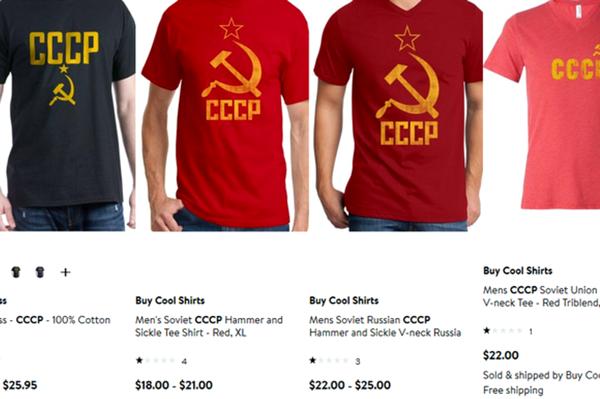wallmart.com
The management of the American network of department stores Walmart responded to the appeal of Baltic republics' politicians and promised to stop selling clothes with Soviet symbols.
A member of the European Parliament from Latvia Inese Vaidere informed about this "achievement", TASS reports. She called the network action "ethical and tolerant."
The Europarliamentarian explaines that recently she found in the online Walmart store a T-shirts with the Soviet Union symbols. Vaidere is convinced that "the symbolism affects millions of people who suffered from the repression of the regime."
She sent a letter to the company signed by several European deputies representing Latvia, Lithuania and Estonia.
As Russkiy Mir reported, there is a law in Latvia that prohibits the use of symbols of the Soviet Union, Latvian Soviet Socialist Republic and Nazi Germany at mass events, marches and pickets. The ban does not extend on the Victory Day - on this day veterans are allowed to go out with orders on their chests.
In Estonia the Soviet symbolism was banned in 2007 and the Russian-language editorial board of the State Television and Radio of Estonia did not recommend mentioning the St. George's ribbon action on air.
The Lithuanian Seimas in 2009 approved the legislative amendments which in fact equated the Soviet symbols with the Nazi. In accordance with them, this symbolism can be used in museums to inform the public about historical and modern events and in some other cases. The demonstration of a five-pointed star as well as a sickle and a hammer during mass events is strictly prohibited.
Russkiy Mir


